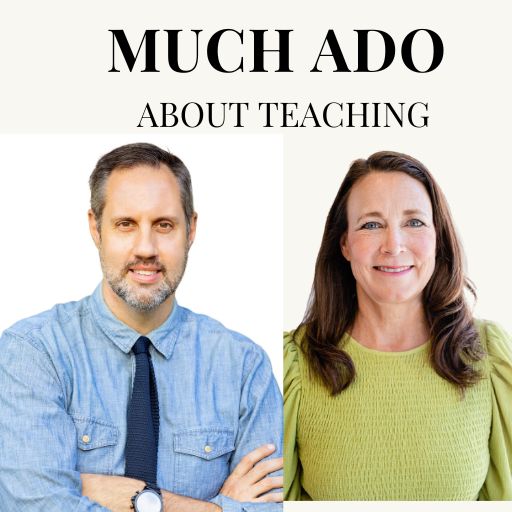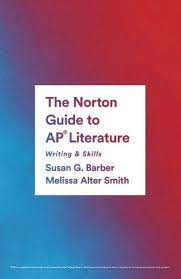A few years ago I revamped my summer reading assignment.
It marked an important departure for me. It was a significant step in my growth as a teacher. I’ll explain why, but first I want to share what I have done in years past.
THE OLD SUMMER READING ASSIGNMENT
My summer assignment has gone through different iterations over the years, but the gist of it has always been that the students had to read two books — How to Read Literature Like a Professor: A Lively and Entertaining Guide to Reading Between the Lines and 1984 — and develop an outline for each. There are many versions of this assignment online. Its probably where I first developed the idea. I must have Googled “How to Read Literature Like a Professor summer assignment.” A bunch of results came up, and seeing that a lot of other teachers paired Thomas C. Foster’s work with another novel probably validated its worth in my mind.
I liked that both books were accessible and my students could find help online if they needed it.
I liked that I was introducing my students to good literature without ruining their summer with dense texts and mountains of work.
I liked that when students returned from school I could assess them by asking them to apply a chapter from How to Read Literature Like a Professor to 1984.
I liked that I was doing something to prevent the summer slide.
THE PROBLEM WITH THE OLD ASSIGNMENT
There was nothing pedagogically wrong with my old summer reading assignment. But there were certain things about it that had bothered me over the years:
- Students can easily find summaries of How to Read Literature Like a Professor online (like this link).
- Many of my students are not readers of classic literature on their own. In spite of its cheeky humor and tone, they did not have the awareness of texts mentioned in How to Read Literature to fully appreciate the references.
- Students felt that How to Read Literature Like a Professor simplified the process of reading, reducing everything to either a symbol or an allusion.
- The assignment was not thoroughly thought through. It was too simplistic. Basically I was asking students to read and outline. I felt like I was simply following what others were doing without making this assignment a true reflection of my teaching and my goals.
- There wasn’t much feedback I could provide on an outline and consequently little room for growth.
THE GOALS OF SUMMER ASSIGNMENTS
I believe that when students are faced with low-rigor tasks, they create low achievement even when students do well on these tasks. In addition, such tasks contribute to the boredom students so often complain about when they spend too many hours on work that is routine and bland, often centered on discrete skills.
Outlining a text is a low-rigor task. It requires little skill beside extrapolation and summarization.
I want my summer assignments to have what I believe are the three principles of an effective assignment:
1. Effective assignments provide clear expectations about what should be completed, how it should be completed, and why the assignment is important.
I needed to rethink the final part of that criteria. While the original assignment provided clear expectations and walked students through the steps to be completed, it never explained why the assignment was important. When there is no value attached to an assignment, the work can feel like busy work.
Assignment-making requires teachers to clarify what learning is demonstrated and how it can be demonstrated. I needed to answer questions about purpose and relevance: “Why are my students doing this? What greater good will result from this work? As well as, are there significant concepts connected to the curriculum?”
2. Effective assignments are formative, providing feedback that allows teachers to adjust their instruction and scaffold learning.
I also needed to understand how my teaching can be informed by what the students completed. This is where the outlines of the prior assignment failed to be valuable. I was learning nothing about my students nor anything about their thinking.
With the new summer assignment adjustments would I make based on the work that students produced? What was I learning about their reading skills or their writing skills?
Good assignments, whether in the summer or during the school year, should inform instruction, giving teachers a chance to assess skills and modify instruction accordingly.
3. Effective assignments set high expectations and provide pathways to achieve those expectations.
I want the new assignment to communicate high expectations for critical thinking and levels of analysis. I want my students to be challenged no matter what skill sets or content background they bring into the course.
WHAT MY STUDENTS ARE DOING INSTEAD
- I want my students to have a summer experience that is not punitive but is preparatory. I don’t want to punish them with mountains of work or use a summer assignment as a gatekeeper for the class. I want to set a foundation for the enjoyment that comes from reading, thinking, and writing creatively and analytically.
- I want my students to see that great ideas can be expressed in a variety of formats. Therefore, they will read blog articles, watch YouTube videos, and read poems as well as a novel.
- I want them to learn from readers, writers, and thinkers that I admire. I’m not just handing them books and asking them to read them, I want them to observe how others analyze and how others approach the act of writing. These pieces have the levels of analysis that will promote high expectations for my students.
- I want them to choose the novel they read, not have one assigned to them.
- I want them to have a space of their own creation (their StudyTee Notes) where they will respond to each text that they encounter in thoughtful and diverse ways.
THE SUMMER READING TEXTS
- StudyTee’s Note-Taking Method
- The NerdWriter Analyzes Edward Hopper’s “Nighthawks”
- Leo Babauta’s Why I Read (+ a Dozen Book Recommendations)
- Any novel on this list or this one
- Poetry Foundation’s Poem of the Day
Download the Summer Reading Assignments for Susan Barber and Brian Sztabnik
CONCLUDING THOUGHTS
I know that I am asking my students to complete somewhat unorthodox summer assignments. They are not being handed a textbook or a stack of novels and asked to complete a series of study guide questions or outlines. There comes a point in a teacher’s career when he or she stops doing things just because everyone else is doing them and strikes out on his or her own path.
And this has been that moment for me.
Instead, I am giving them models of critical thinkers. I am exposing them to a variety of texts across a span of genres. I am giving them the power to choose the novel and poems that they want to read. And it will have clear expectations, an understanding of why each component of the assignment is important, a chance for me to gain formative feedback, and high expectations for success.












